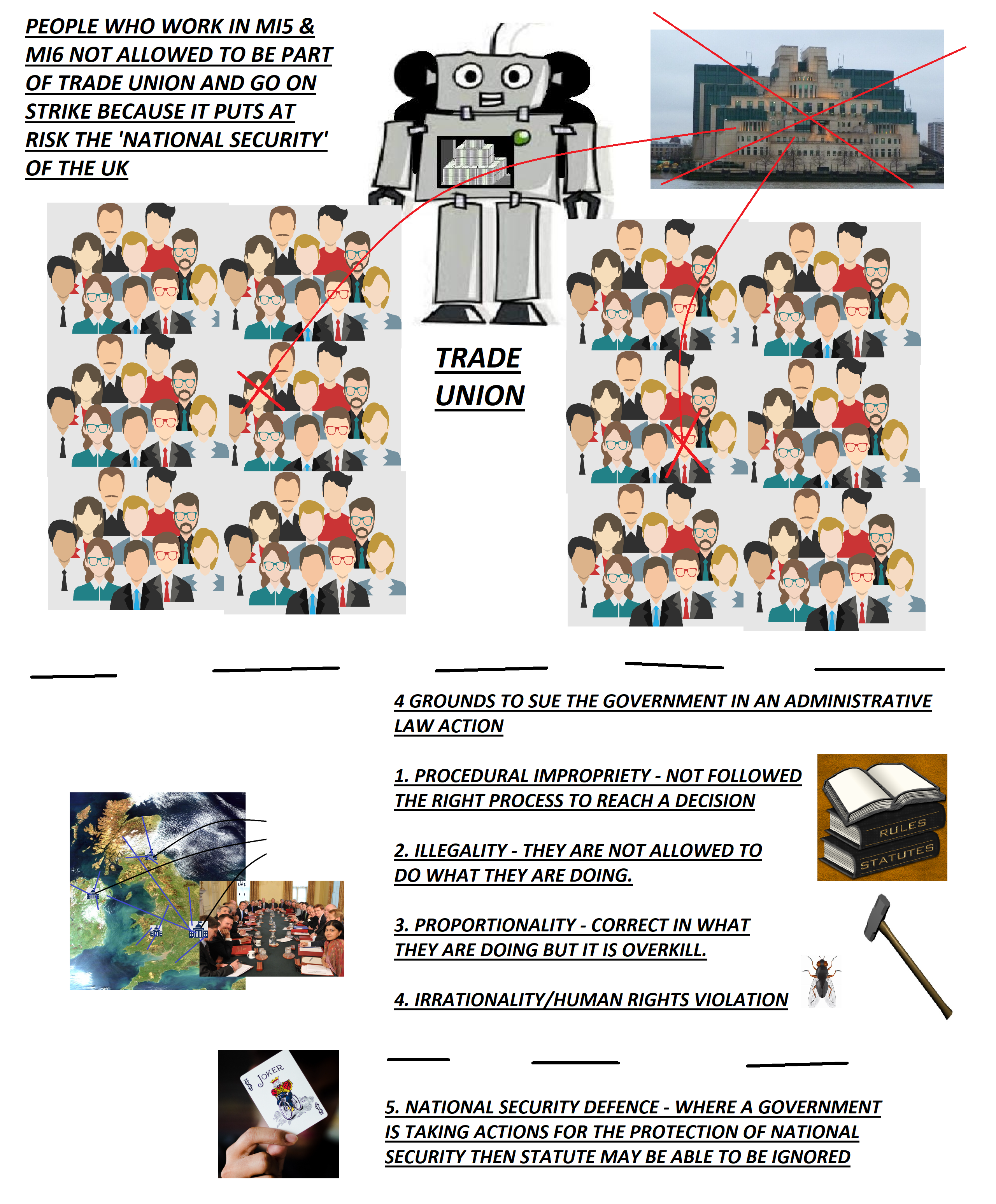Civil Service Union v Minister for the Civil Service, [1985] AC 374
Citation:Civil Service Union v Minister for the Civil Service, [1985] AC 374
Rule of thumb 1:What is the basic legal method for raising a Judicial Review against the Government in administrative law? The Court affirmed the 4 standard grounds of judicial review are - (i) illegality, (ii) procedural impropriety, (iii) proportionality, and (iv) irrationality. The Court confirmed that irrationality and Wednesbury unreasonableness are the same thing, and this means that there is also a clear link between administrative law and human rights law. An administrative law action can be raised on the grounds of human rights.
Rule of thumb 2:When can the Government ignore a statute? If the Government can prove with clear evidence that there was a risk to ‘national security’ then they do not have to follow statutory or common law rights. National security is like a ‘trump card’ over these.
Rule of thumb 3:What is the test to raise a Judicial Review? The test is substantive prejudice.
Background facts:
The facts of this case were that the workers of MI5 and MI6 intended to be part of a trade union and carry out a strike.
Parties argued:
It was argued by the trade union that the trade union rights of these employees were being clearly breached. The Minister argued that the employees of these organisations could not carry out strikes due to the risk of attack by very dangerous criminals.
Judgment:
The Court accepted the arguments of the minister. The reasoning of the Court was that where the Government states that national security is the reason for a decision being taken, it is extremely difficult to argue successfully against it. It has to be clearly argued that national security is most certainly not being affected and this was not done here. Lord Diplock’s dictum codifying the grounds of judicial review in this case is famous and very commonly cited by people at the start of judicial review arguments.

Ratio-decidendi:
‘My Lords, I see no reason why simply because a decision-making power is derived from a common law and not a statutory source, it should for that reason only be immune from judicial review. Judicial review has I think developed to a stage today when without reiterating any analysis of the steps by which the development has come about, one can conveniently classify under three heads the grounds upon which administrative action is subject to control by judicial review. The first ground I would call "illegality," the second "irrationality" and the third "procedural impropriety." That is not to say that further development on a case by case basis may not in course of time add further grounds. I have in mind particularly the possible adoption in the future of the principle of "proportionality" which is recognised in the administrative law of several of our fellow members of the European Economic Community; but to dispose of the instant case the three already well-established heads that I have mentioned will suffice … ‘By “irrationality” I mean what can by now be succinctly referred to as “Wednesbury unreasonableness” (Associated Provincial Picture Houses Ltd. v. Wednesbury Corporation [1948] 1 KB 223)’, Lord Diplock
‘Normally in applications to quash, for the claimant to succeed in quashing the decision he must have been ‘substantially prejudiced’ by the failure to comply with the statute’s procedural conditions’, Lord Diplock.
Warning: This is not professional legal advice. This is not professional legal education advice. Please obtain professional guidance before embarking on any legal course of action. This is just an interpretation of a Judgment by persons of legal insight & varying levels of legal specialism, experience & expertise. Please read the Judgment yourself and form your own interpretation of it with professional assistance.

